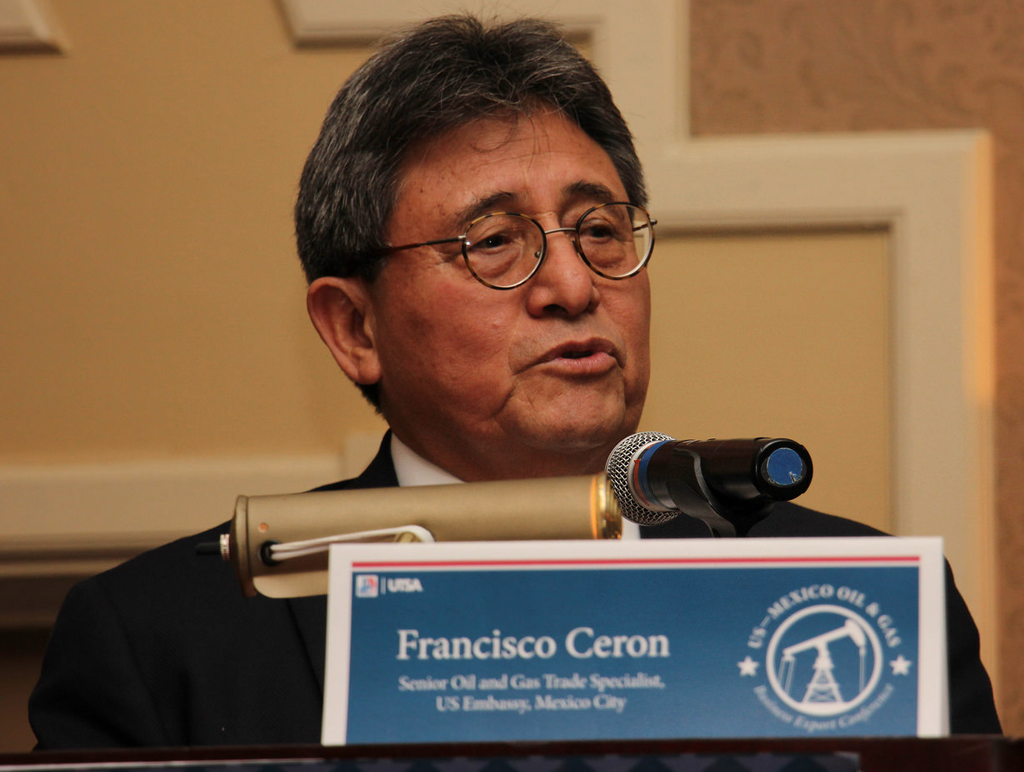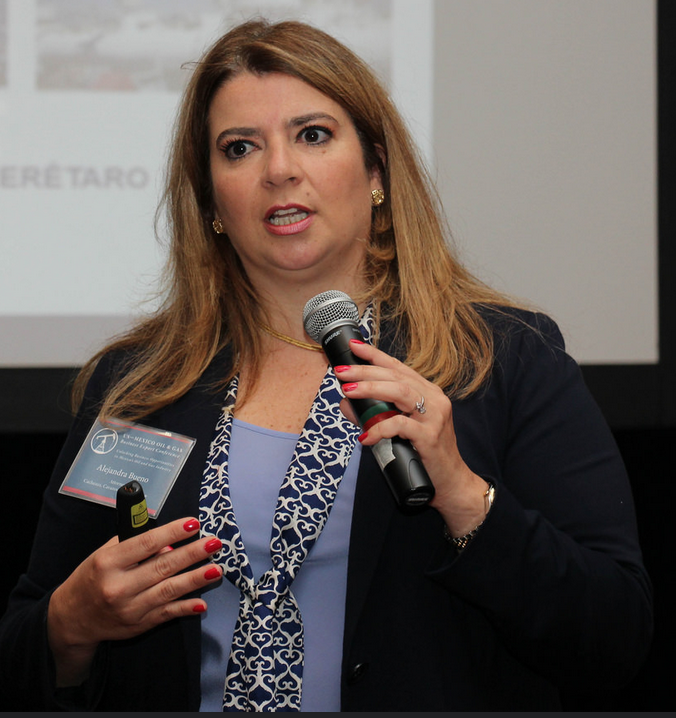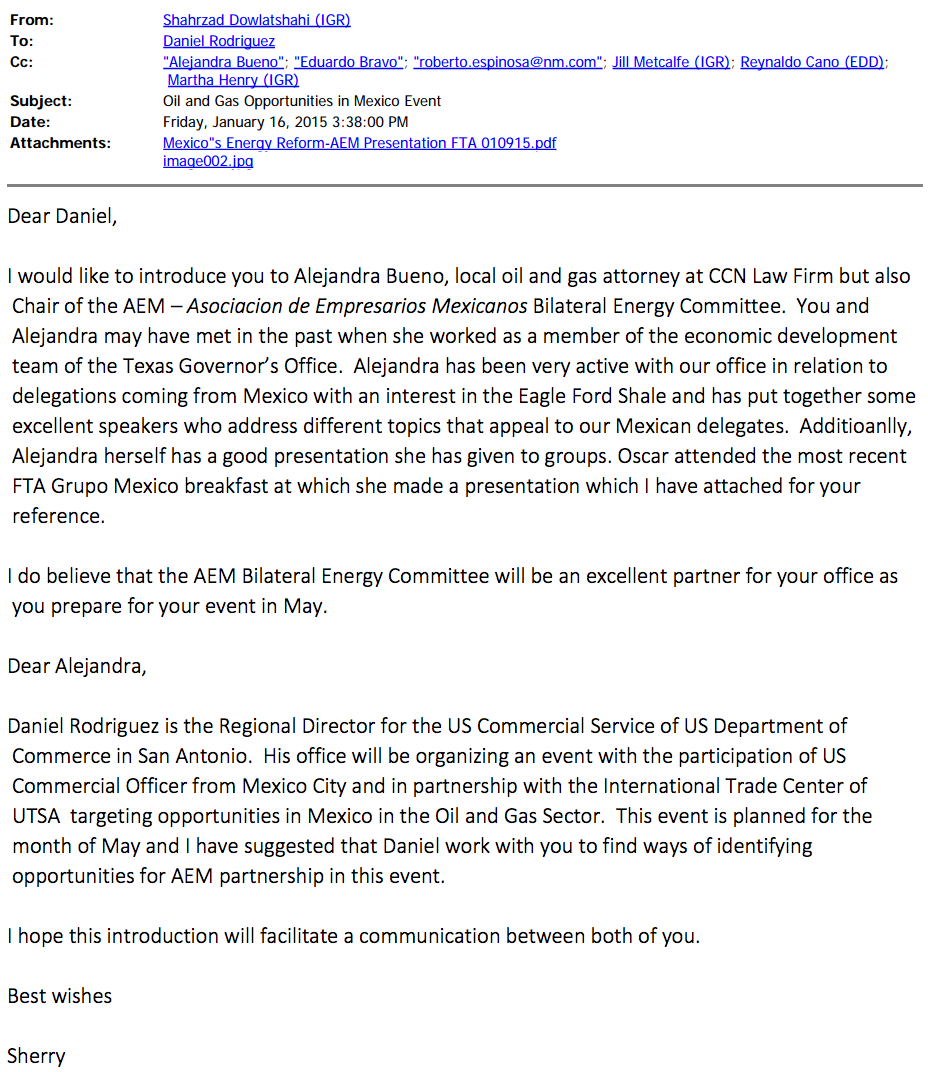New records obtained by DeSmog shed further light on the role the U.S. government has played to help implement the privatization of Mexico’s oil and gas industry, opening it up to international firms beyond state-owned company PEMEX (Petroleos Mexicanos).
Obtained from both the City of San Antonio, Texas and University of Texas-San Antonio (UTSA), the records center around the U.S.–Mexico Oil and Gas Business Export Conference, held in May in San Antonio and hosted by both the U.S. Department of Trade and Department of Commerce, as well as UTSA.
They reveal the U.S. government acting as a mediator between Mexico’s government and U.S. oil and gas companies seeking to cash in on a policy made possible by the behind-the-scenes efforts of then-Secretary of State Hillary Clinton’s U.S. State Department. State Department involvement was first revealed here on DeSmog, pointing to emails obtained via Freedom of Information Act and cables made available via Wikileaks.
The records also call into question the claim made by Mexico’s Energy Secretary, Pedro Joaquín Coldwell, that the privatization policy was “100 percent made in Mexico.” Coldwell said this in reaction to DeSmog’s investigation showing heavy State Department involvement in ushering in the policy.
“It is absolutely false that Hillary Clinton or any other United States government entity had anything to do with the Mexican energy reform,” Coldwell stated.
If the U.S. government had nothing to with creating the policy architecture to begin with, and its own records tell the opposite story, then it sure is shocking how involved it is now in the attempt to help U.S. companies build their profits from the new policy regime.
“Want to Grow Your Business?”
Indeed, event organizers boasted of the convening as a business opportunity for U.S. companies.
“The conference is a one-day seminar for U.S. exporters who want to take advantage of the energy reform in Mexico’s oil and gas industry,” explained a press release ahead of the event. “The conference will bring together experts from government, business, and academic sectors to discuss the opening markets in Mexico. Experts will show companies in Texas what they can do to position themselves to get in on the ground level of new market opportunities.”
Thomas Tunstall, researcher at UTSA and author of a recent report on the economic impacts of hydraulic fracturing (“fracking”) in the Eagle Ford Shale funded by lobbying powerhouse America’s Natural Gas Alliance (ANGA), echoed these comments in a quote he provided ahead of the event.
“Not only is this an opportunity for companies in Mexico,” said Tunstall, “but this prospect for shale oil and gas exploration and production represents an export opportunity for U.S. companies that have pioneered the unconventional techniques in use now.”
An email blasted out to conference invitees by the U.S. Commercial Service, a wing of the U.S. Department of Commerce, shows how the event was pitched to those invited and what business opportunities it could present.
U.S. Government-Tied Speakers
Francisco Ceron, senior oil and gas trade specialist for the U.S. Commercial Service, was among those who spoke at the conference. He gave a presentation titled, “The Oil and Gas Mexican Market and Opportunities for U.S. Firms,” which had several pages pointing out ways U.S. companies could profit from the policy the U.S. government created, and another titled, “Become a PEMEX Supplier.”
Francisco Ceron; Photo Credit: UTSA
Colleagues of Ceron at the U.S. Commercial Service also offered introductory remarks to begin the San Antonio convening and spoke on a panel.
“Mexico’s sweeping energy reforms were entirely made in Mexico. The U.S. Department of Commerce did not influence these reforms while they were being undertaken,” Karen Allen, a Commercial Officer for the U.S. Commercial Service in Mexico City, told DeSmog.
“Now that the reforms have passed and are law, the U.S. Foreign and Commercial Service assists U.S. companies to export their energy-related goods and services into Mexico. The U.S.-Mexico Oil and Gas Business Exporting Conference provided business intelligence to U.S. companies that are interested in exporting to this newly liberalized sector of the Mexican market.”
Alejandra Bueno, attorney at the firm Cacheaux, Cavazos & Newton (CCN), also spoke at the meeting.
CCN was founded in 1994 and boasts on its website that the “practice grew rapidly as the effects of the North American Free Trade Agreement (NAFTA) took hold.” Some, such as banking giant BBVA, have described oil and gas sector privatization efforts in Mexico as “a major breakthrough in Mexico’s economic history only comparable to the signing of NAFTA.”
Before getting a job at CCN, Bueno worked as Director for International Business and South Texas Representative for Texas Republican Governor and Republican Party presidential nominee Rick Perry from 2007 to 2013. Perry sits on the Board of Directors of Energy Transfer Partners, a company aiming to build the U.S-Mexico border-crossing fracked gas Trans-Pecos Pipeline, and has come out in support of Mexico’s constitutional amendments.
Alejandra Bueno; Photo Credit: UTSA
While working for Perry, Bueno’s duties included “assistance provided to expansions and operations related to the Eagle Ford Shale Play,” according to her LinkedIn profile.
Bueno also serves as chairwoman of the bilateral energy committee of the Asociación de Empresarios Mexicanos (AEM), created about a year after the passage of the amendment to Mexico’s constitution in November 2014 with aims to “facilitate the exchange of opportunities and interconnectivity among companies in the US and Mexico doing business within the energy sector,” according to its website. CCN‘s bilateral energy committee’s stakeholders, according to its website, include the likes of U.S. oil companies such as Hunt Oil, Lewis Energy and Nustar.
According to an introductory email sent from Shahrzad Dowlatshahi, head of international relations for the City of San Antonio to Daniel Rodriguez, Director of the San Antonio office for the U.S. Export Assistance Center (a wing of the U.S. Department of Trade), “Alejandra has been very active with our office in relation to delegations coming from Mexico with an interest in the Eagle Ford Shale.”
Image Credit: City of San Antonio
Bueno did not respond to multiple requests for comment sent by DeSmog.
“Mexicans Fully Understand”
Not everyone’s buying the statements made by Coldwell and the U.S. Commercial Service, however.
“Mexicans fully understand the importance oil plays in their economy, and they do not trust foreign capital or the US government to work for their benefit,” Andrew Smolski, a North Carolina State University sociology PhD student and critic of privatization efforts in Mexico, told DeSmog. “Because of that, Joaquín Coldwell and the U.S. Commercial Service are trying to sell the line that the energy reform is ‘100% Mexican’ when it clearly was not.”
Smolski also said it’s important to widen one’s lens when looking at oil and gas privatization in Mexico.
“On the big picture, privatization in Mexico goes back at least to the early-90s,” he said. “What Coldwell said is just ridiculous in light of that. Nothing after 30 years is restricted nationally as a matter of policy and trade.”
Photo Credit: Jim Barber | Shutterstock
Subscribe to our newsletter
Stay up to date with DeSmog news and alerts










